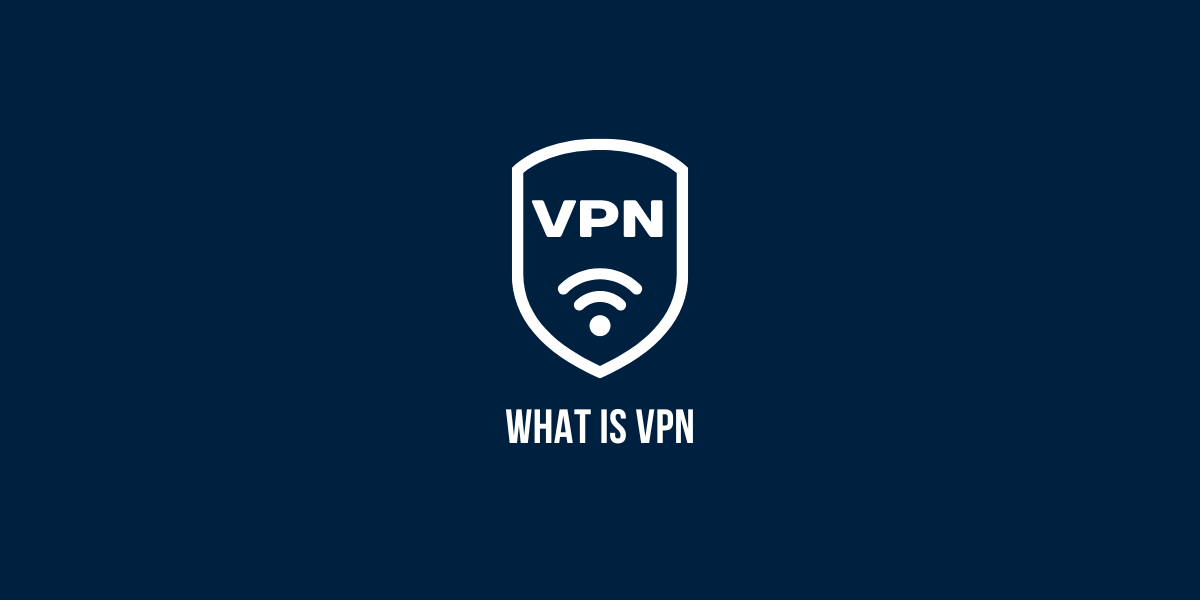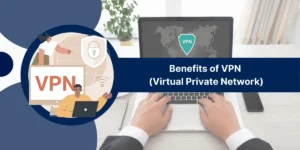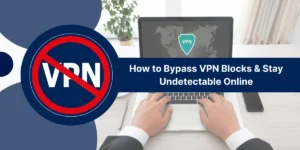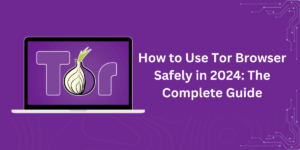Introduction to Virtual Private Networks (VPNs)
A virtual private network (VPN) is a technology that allows users to securely access a private network and share data remotely through public networks. VPNs encrypt internet traffic and disguise a user's location, providing secure access to restricted resources and websites.
VPNs initially gained popularity as a way for corporations to securely connect remote branches and allow employees to access company networks remotely. With the rise of cybercrime and surveillance, VPN usage has expanded as a means to protect online privacy and anonymize web browsing.
The origins of VPN technology date back to Microsoft's Point-to-Point Tunneling Protocol (PPTP), which was released in 1999. VPN capabilities were built into Microsoft Windows, starting with Windows 95. Early VPN capabilities were basic compared to today's standards.
Over the past two decades, VPN protocols, encryption standards, and accessibility have improved vastly, with VPNs becoming widespread in both personal and commercial use. High-speed broadband connections have further enabled their growth.
Key Takeaways
- A VPN creates an encrypted tunnel between your device and a VPN server, protecting your data as it travels over the internet.
- VPNs mask your real IP address with one from the VPN provider, hiding your identity and location.
- VPN encryption prevents your ISP and others from snooping on your browsing activity and data.
- You can use a VPN to access blocked websites and content that is not available in your country.
- Paid VPN services generally offer better security, speeds, servers, and features compared to free alternatives.
What Does VPN Stand For?
VPN stands for "virtual private network." It works by establishing an encrypted connection between your device (computer, smartphone, router, etc.) and a server operated by the VPN service.
This encrypted tunnel allows data to travel back and forth securely. Your internet traffic enters the tunnel on your device, gets encrypted, and is then directed through the VPN server and out to the public internet.
The VPN server acts as an intermediary that protects and routes your traffic. It also hides your real IP address, as all incoming requests appear to be coming from the VPN server IP instead. This allows you to browse the internet privately and access restricted content and sites.
How VPNs Work
A VPN creates a secure, encrypted connection called a "tunnel" between the user's device and the VPN server. The user's internet traffic is routed through this tunnel before exiting to the public internet.
- When connected to a VPN, the user first establishes an encrypted connection to the VPN server. This creates a secure tunnel through which all data can flow.
- Internet traffic is then routed through the encrypted VPN tunnel before accessing the public internet. This prevents third parties from viewing or intercepting the traffic.
- The VPN assigns the user a virtual IP address from the VPN provider network. This masks the user's true IP address and location, providing anonymity.
- Websites and services see the traffic coming from the VPN server's IP address, not the user's actual IP, hiding their identity and location.
Types of VPNs
There are different VPN types optimized for specific use cases:
- Remote Access VPN: Connects individual devices, such as laptops, to a private network and resources. Allows employees to securely access company resources.
- Site-to-Site VPN: Connects entire remote office networks through a VPN appliance or router. Provides seamless wide area network connectivity.
- Cloud VPN: Extends an organization's network into a cloud provider's infrastructure. Secures access between cloud and on-premise environments.
- Mobile VPN: Designed for smartphones and tablets to route mobile traffic through the VPN. Provides security on public Wi-Fi networks.
- SSL/TLS VPN: SSL or TLS tunnels are used to provide network-level access to resources and applications. Easy to deploy on top of standard SSL infrastructure.
Why Should You Use a VPN?
There are several important reasons why you should be using a VPN whenever you go online:
Keep Your Browsing Private and Secure
One of the main benefits of VPNs is enhanced privacy and security. By routing your traffic through an encrypted tunnel, your data stays protected from prying eyes. This prevents your internet service provider (ISP), hackers, spy agencies, and even the websites you visit from viewing your internet activity.
This allows you to browse, stream content, shop online, use public WiFi, and download files more securely. VPN encryption scrambles your data so that it can't be intercepted and deciphered.
Hide Your Location and Identity
VPNs give you anonymity online by masking your real IP address and location. Websites and services will only see the IP of the VPN server you are connected to, not your true home or mobile network IP that can identify your location.
This allows you to avoid targeted advertising and location-based content restrictions. It also prevents websites, your ISP, and third parties from building profiles and logs about your browsing habits and physical location.
Bypass Geographic Restrictions
Certain websites, streaming platforms, and online services block access based on your location. With a VPN server in a different country, you can bypass these geographic restrictions.
For example, you can use a VPN to access your favorite Netflix shows abroad, get around blackout game restrictions, and access news sites blocked in your country. VPNs give you freedom on the internet.
Prevent Throttling by Your ISP
Some internet providers deliberately slow down (throttle) bandwidth speeds for certain online activities, such as streaming video and downloading files. They do this during peak congestion times to manage traffic.
To get around this throttling, you can connect to a VPN server in a different location not impacted by your ISP's throttling practices. This ensures full speed at all times.
Enhanced Security on Public WiFi
Public WiFi hotspots at cafes, airports, hotels, etc., are often not secure. Hackers can snoop on your connection or attempt to steal your data.
A VPN secures your connection on public networks and tunnels your browsing activity to keep it safe from prying eyes. This gives you protection when connecting to open hotspots.
Prevent DNS Leaks
Your computer normally uses your ISP's DNS servers. DNS translates domain names (like google.com) into IP addresses. DNS requests can reveal your browsing activity.
VPN services use their own encrypted DNS servers. This prevents your ISP from logging the sites you visit via DNS requests, stopping a DNS leak.
Remote Access
VPNs allow remote workers to securely access company resources like intranets and internal applications hosted on a private corporate network. By tunneling into the corporate network over the VPN, remote staff can work from home as if they were physically in the office.
What is a VPN Used For? Common VPN Uses
Now that you understand the main benefits, here are some of the most popular activities and use cases for using a VPN:
- Privacy protection: VPNs keep your browsing and activity private from your ISP, WiFi providers, government agencies, and websites/services you use. They prevent tracking and surveillance.
- Access blocked content: VPNs allow you to bypass geographic restrictions and censorship to access blocked news, social media, video streaming, and other sites not available in your country.
- Avoid location tracking: Stay anonymous by hiding your physical location from websites and services when connecting through a VPN server in a different city or country.
- Using public WiFi securely: VPN encryption protects your data against man-in-the-middle attacks and snooping when accessing public hotspots.
- Torrenting and P2P activity: VPNs shield your IP address and internet traffic when downloading torrents, allowing you to share files more anonymously and privately.
- Stream sports and entertainment—Access blackout-restricted sporting events, live TV channels, Netflix catalogs in other countries, etc.
- Online gaming: Improve ping, connection speeds, and security when gaming by routing traffic through a nearby VPN server.
- Access corporate networks and resources—Remote employees can securely tunnel into company servers over a VPN to access intranets, shared files, and internal tools when working outside the office.
- Protect Internet of Things (IoT) devices: Connect smart home gadgets, digital assistants, security cameras, etc., to a VPN to add a layer of security and privacy to their internet activity.
- Hide internet activity from ISP: Prevent your internet provider from logging and monetizing your browsing data by encrypting traffic between your device and the VPN server.
Do You Really Need a VPN?
Here are a few key questions to ask yourself when determining if getting a VPN is right for you:
- Are you concerned about your online privacy? VPNs keep your browsing secure and private from your ISP, advertisers, and websites.
- Do you regularly use public WiFi? Hotspots in cafes, airports, hotels, etc. can be hacked. A VPN keeps your data safe on open networks.
- Do you access blocked websites or content? VPNs allow you to bypass censorship and geographic restrictions to access sites like social media, news, and video streaming platforms that may be blocked where you live.
- Do you torrent or download pirated content? VPNs hide your IP address and internet traffic from copyright trolls and agencies when torrenting.
- Do you want to access streaming content from other countries? VPNs can bypass "geo-blocks" and allow you to view catalogs on Netflix, Hulu, BBC iPlayer, and other services normally limited to certain countries.
- Do you want better protection for IoT devices? Connecting smart home gadgets, security cameras, assistants, etc., to a VPN adds a vital layer of security and privacy.
- Do you use open WiFi hotspots when traveling? Public WiFi in airports, cafes, hotels, and other locations often lacks security. A VPN secures your connection.
- Do you make purchases online or access financial accounts? VPN encryption provides important protection for your sensitive login details, transactions, and payment information.
How to Choose the Best VPN: Important Factors
There are countless VPN providers to choose from, but not all VPN services are created equal. Here are the key factors to consider when selecting the best VPN for your needs:
Security & Encryption
The level of encryption and security protocols used by the VPN is critical. Look for VPNs that offer the OpenVPN protocol with AES 256-bit encryption, which is considered military-grade and extremely difficult to crack. Some also use protocols like IKEv2/IPSec and WireGuard for speed and efficiency. Avoid services lacking modern protocols and encryption standards.
Server Network Coverage
The number of servers a VPN offers and their geographic spread determine how reliable the service is and if you can bypass geo-blocks. More servers mean you're more likely to get good speeds by connecting to ones nearby. A wider server network also allows you to switch to servers in other countries or regions to unlock their content. Look for VPNs with 1,000+ worldwide servers.
Internet Speeds & Performance
A sluggish VPN severely affects your internet experience. When comparing VPN services, peak download speeds, average speeds, speed consistency, and ultra-fast server options should be assessed through third-party speed tests. In general, paid VPNs deliver better speeds than free options.
Pricing and Plans
VPN services are typically offered on a monthly, 6-month, or annual subscription basis. Shorter plans cost more monthly. Many VPNs also offer attractive long-term plans, sometimes as cheap as a few bucks per month on 3-year plans. Consider free trials to test a service first.
Supported Platforms & Devices
The best VPN services support all major platforms and devices—Windows PCs, Mac computers, iOS and Android mobile devices, Linux, routers, media streamers, gaming consoles, and more. User-friendly apps for all platforms make it easy to set up the VPN, and some even offer browser extensions, maximizing compatibility and convenience.
No Traffic or Connection Logs
Any reputable VPN maintains a strict no-logging policy for all traffic and connection data that passes through their servers. They should not track, collect, or share any logs or metadata about your internet activity. Double-check their logging policies before signing up.
Reliability and Uptime
Choose a VPN that offers maximum uptime with reliable connections. There shouldn't be frequent disconnections or server downtime issues that affect performance. Useful features like an automatic kill switch, which stops internet access if the VPN drops, maintain security in case of disruptions.
Simultaneous Device Connections
Most quality VPNs allow connecting 5-10 devices under one account. The ability to protect several devices, such as mobile phones, laptops, tablets, streaming gadgets, and game consoles, with a single VPN subscription, increases value for money.
Extra Features
Additional features to look for include a built-in ad blocker, malware protection, split tunneling (choosing which apps use the VPN), double VPN or multi-hop (routing traffic through 2 servers), SOCKS5 web proxy, and port forwarding support. These extras enhance privacy, security, and functionality.
By evaluating VPNs based on the above criteria, you'll be able to zero in on the ideal service for your needs and budget. Never opt for a free VPN or one that makes big promises but is vague about details about its security, network, and logging policies.
Internet of Things (IoT) Security
IoT security involves hardening diverse IoT devices and networks against evolving threats and addressing their security gaps.
This includes:
How a VPN Compares to Other Privacy & Security Tools
Along with VPNs, some other popular online privacy and security tools include:
- Tor Browser: This software routes traffic through the Tor anonymity network, making it much harder to identify and track activity back to you. The encryption and multi-hop routing ensure enhanced anonymity beyond a VPN, but it is slower than a VPN.
- Proxy Server: Proxies also disguise your IP address and can bypass some blocks. But they don't encrypt traffic like VPNs. Proxies only hide your IP address to a point but don't provide full security.
- Firewall: Firewalls filter incoming and outgoing connections to block malicious traffic but don't encrypt or route your traffic through an intermediary server like a VPN does. Firewalls offer only limited privacy protections.
- End-to-End Encryption: Services like WhatsApp use end-to-end encryption where messages are encrypted between the sender's and recipient's devices without third-party interception. But it secures only messages, not general web traffic like a VPN.
- Anonymous Browsersstrip away identifying browser information that can track online activity. However, they don't conceal your IP address or encrypt all traffic like a VPN.
Main VPN Protocols Explained
There are several network protocols that VPN services use to establish encrypted connections:
- OpenVPN:An open-source protocol that uses OpenSSL encryption. Provides the best overall blend of speed, security, and reliability across different devices.
- IKEv2/IPSec:Created by Cisco and Microsoft. It is very secure and fast but not as widely supported on some platforms compared to OpenVPN. It is also used in many enterprise VPN solutions.
- WireGuard:A newer protocol focused on simplicity, efficiency, and speed. It is relatively new but gaining popularity due to its performance benefits.
- L2TP/IPSec:Uses weaker encryption than OpenVPN. It is still secure but can be slower as encryption/decryption occurs twice.
- SSTP:Developed by Microsoft and used in Windows's built-in VPN client. Provides security comparable to OpenVPN with good speeds. But they have limited cross-platform support.
- PPTP:One of the oldest protocols and considered obsolete due to weak encryption that is easy to crack. It is not recommended for use anymore.
Are VPNs Legal?
In most countries, using VPN technology is fully legal. Encrypting your internet traffic and routing it through a server in a different location is not inherently illegal. VPN services operate legitimately like any other privacy and security software tool.
However, some repressive regimes try to impose restrictions on VPN access. Countries like China and Russia have passed laws attempting to ban or curb the use of VPNs among their citizens, but these laws are more difficult to enforce.
Parts of the Middle East also forbid the use of VPNs, and there are some complex legal issues surrounding VPNs in the UAE, Turkey, Belarus, and elsewhere. But in North America, Europe, Australia, and other democracies, VPNs remain perfectly legal.
Connecting to a VPN is a good idea because it allows you to do everything correctly. However, once connected, if you use it to access illegal content, conduct malicious hacking, or commit copyright infringement, that activity remains banned, just like without a VPN.
But merely encrypting your regular internet activity is not illegal in most free countries. Some businesses also mandate employee VPN use to access company data and networks remotely.
As technology advances, VPNs are increasingly vital for online privacy. Outright bans seem heavy-handed, and laws can lag behind rapid technological progress. Beyond repressive areas, VPNs exist in a legal grey zone at worst. However, they align with principles of privacy and free speech, which often outweigh the local restrictions that are imposed.
Can Your ISP Detect If You Use a VPN?
VPN encryption prevents your internet service provider (ISP) from monitoring and logging your online activity when connected. But can your ISP detect VPN usage at all?
In short, yes: ISPs can see you are using a VPN because VPN traffic appears on their network. When you are not using a VPN, your ISP assigns you a unique IP address that identifies you each time you go online.
But when connected to a VPN, your ISP instead sees you communicating with a single IP address belonging to the VPN server. This outgoing VPN traffic has a very distinct digital footprint that indicates you are routing your connection through an intermediary server.
So, while your ISP can deduce you are connected to a VPN, they cannot see inside the encrypted tunnel to view your actual browsing activity and data. All your traffic is scrambled, and your origin IP is hidden. ISP surveillance is blocked despite the high-level VPN detection.
Some VPN services, like ExpressVPN, also offer obfuscated server connections. These make the traffic appear more random and less identifiable as VPN usage. However, regular VPN connections already anonymize your browsing even if your ISP detects them as a VPN.
Are VPNs Safe?
When used correctly by a reputable provider, VPNs are generally safe to use and pose minimal risks. However, there are some security considerations to keep in mind:
- VPN logging policies: A trustworthy VPN should never log any browsing activity or connection timestamps/data. But not all do. Check logging policies closely before signing up.
- Third-party access: While encrypted, your traffic passes through the VPN provider before exiting onto the public internet. Avoid providers based in countries with intrusive government surveillance laws.
- WebRTC leaks: This browser-based real-time communication protocol can potentially expose your true IP address if the VPN kill switch fails to disable it when the VPN disconnects.
- IPv6 leaks: Most VPNs will block IPv6 traffic if not tunneled through their connection. But IP address leaks are possible if IPv6 isn't fully disabled on your device.
- DNS leaks: Using third-party encrypted DNS alongside the VPN prevents DNS requests from revealing private data.
- Malicious exit nodes: When using Tor for added anonymity, adding a VPN provides vital protection against snooping exit nodes on the Tor network.
- Browser extensions: Beware fake VPN extensions that may be operated by data mining companies and lack proper encryption.
Do VPNs Work on Public WiFi?
Yes, using a VPN provides vital protection when accessing public WiFi networks at coffee shops, hotels, airports, and other venues.
The big risk with public hotspots is that, without encryption, malicious actors can intercept communications and harvest transmitted data that passes between your device and the WiFi router.
A VPN secures your connection to the public WiFi and encrypts all activity, preventing spying and interception. It creates a private tunnel even though you are using the public network.
With a VPN, hackers on the same network won't be able to see what websites you are visiting or view any data you send and receive online. This makes it much safer to use public hotspots.
Some other tips to keep in mind:
- Use HTTPS websites that have URLS starting with "https://" when possible for an added layer of encryption.
- Avoid accessing sensitive accounts like online banking and email without a VPN.
- Don't enable file/resource sharing with other computers connected to the same public WiFi network.
- Keep your VPN connected until you are completely off the public WiFi network.
Do VPNs Work on Streaming Services like Netflix?
Yes, VPNs allow you to access streaming services like US Netflix, BBC iPlayer, Disney+, and others while traveling abroad or when geo-restricted.
By default, streaming platforms limit certain content to viewers in specific countries or regions due to licensing restrictions. Using a VPN with servers in the appropriate country provides a workaround to view this geo-blocked content by masking your location.
However, streaming companies are increasingly trying to block VPN access due to licensing pressures. Netflix, in particular, has been very aggressive about VPN bans. Many VPN IP addresses are detectable and get blocked by Netflix.
The best VPNs for streaming have dedicated streaming-optimized servers designed to avoid detection. They also unblock a wide array of top streaming sites. ExpressVPN and NordVPN are among the top choices for unblocking platforms like Netflix.
While using a VPN to stream geo-restricted content violates the terms of service, it remains a very grey area. VPN usage is not directly illegal, and no definitive laws prevent the circumvention of digital borders.
Troubleshooting Common VPN Issues
Here are some troubleshooting tips for the most common VPN problems:
- Slow connection speeds: Connect to a different VPN server location, enable protocol options for faster connectivity like WireGuard, and limit bandwidth-heavy tasks like video streaming when using the VPN.
- VPN disconnects randomly. If disconnects persist, Disable the VPN app's battery optimization/sleep mode, switch to more reliable protocols like OpenVPN, enable the kill switch, and restart your device and router.
- Certain sites blocked: Some sites actively block known VPN IP ranges. Try switching VPN servers or contacting support to report the site so the IP can be changed.
- Apps not working with VPN: Downloads and other apps may not work properly over VPNs. Set up split tunneling to allow apps to bypass the VPN while others maintain privacy.
- VPNs are banned. Schools, employers, and some countries block VPNs. Try using less detectable obfuscated servers and ports, or use public WiFi to connect to the VPN instead of their network.
- If you cannot log into the VPN app: Check your credentials and make sure 2FA/MFA is enabled if required. Contact support if you still can't authenticate successfully to access your VPN account.
Final Thoughts
Virtual private networks (VPNs) have evolved into an essential technology for protecting online privacy, securing remote access, and circumventing censorship. By encrypting traffic and concealing identities, VPNs allow users to take control of their data security and privacy.
However, users must choose a trustworthy VPN provider and understand the limitations around privacy, speed, and security. As cyber threats grow globally, along with surveillance overreach, VPNs provide a powerful tool for individuals and organizations to protect their data and privacy online.
FAQs
What is a VPN, and how does it work?
A VPN creates an encrypted tunnel to route traffic securely between your device and a server, hiding your IP address and location. VPNs encrypt your internet connection to protect your online privacy and security.
Is a VPN legal to use?
In most countries, including the US, Canada, and Europe, using a personal VPN is legal. However, some regions, like China, restrict VPN usage. Know your local laws.
What's the best VPN protocol to use?
OpenVPN and WireGuard offer the best blend of speed and security. Avoid PPTP as it's insecure. IKEv2 is also very fast and secure.
Can a VPN keep my browsing history private?
A trustworthy VPN prevents your ISP from logging your browsing history. However, your VPN provider can still see your activity, so choose one with a strict no-logging policy.
Will a VPN protect me on public Wi-Fi?
Yes, connecting to public Wi-Fi with a VPN prevents hackers from snooping on your internet activity or stealing sensitive data like passwords.
Which is better - free or paid VPN?
Paid VPNs are more reliable and secure. Free VPNs often have bandwidth limits, weaker security, may log data, and need to be more transparent about practices.

Jinu Arjun
 Verified Experienced Content Writer
Verified Experienced Content Writer
Jinu Arjun is an accomplished content writer with over 8+ years of experience in the industry. She currently works as a Content Writer at EncryptInsights.com, where she specializes in crafting engaging and informative content across a wide range of verticals, including Web Security, VPN, Cyber Security, and Technology.



